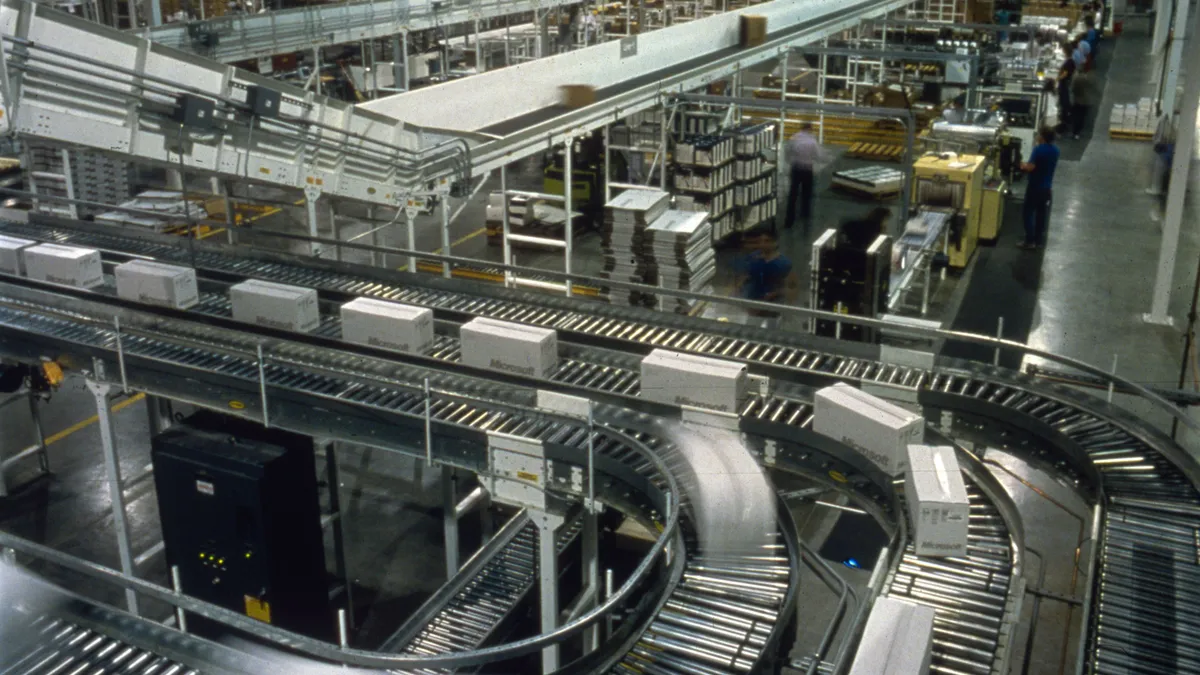A Microsoft representative joined a group visiting a cobalt mine in the Democratic Republic of Congo to study some of the key issues involved in the mineral’s supply chain.
The visit was to a mine in the DRC that had been the site of a “formalization” pilot program that provided safety measures, training and support to a mine worked by small-scale artisanal miners from the region.
A recent report from the Geneva Center for Business & Human Rights detailing the mine tour in December noted the presence of Michele Burlington, Microsoft’s chief of staff for its technology and corporate responsibility team, in the visiting group.
“Microsoft is committed to responsible and ethical sourcing, a responsibility we take very seriously,” a Microsoft spokesperson told Supply Chain Dive in a statement also provided to the GCBHR report author and other media. “We are continuing to work on this problem. It’s an issue that will take a coalition to solve.”
The report describes artisanal small-scale mining as a “business reality in the DRC,” making up as much as 30% of the total cobalt production of the country, which provides 70% of the cobalt used in rechargeable batteries worldwide.
At the pilot site, a mine called Mutoshi operated by the Dubai-based Chemaf in the south of the DRC, miners were given safety equipment, including boots, helmets and goggles, as well as medical care at the location to treat work injuries. A safety fence and ID tags regulated the flow of workers to the mines and barred children and pregnant women. No fatalities were reported during the two years of the pilot before the pandemic era.
The project also increased the participation of women workers at the mine, where before they were often excluded because of traditional belief that females could cause bad luck. The formalization project included training to combat bias and other measures to increase women’s participation.
The resulting increase in household income from women’s mining activity helped fund children’s attendance at school. That in turn reduced child labor in the area, according to the report, by Dorothèe Baumann-Pauly, director of the GCBHR at the Geneva School for Economics and Management and research director for the NYU Stern Center for Business and Human Rights.
The advent of COVID-19 disrupted the pilot. In the ensuing years, worker’s safety gear wore out and was often not replaced, the safety fence came down, and the number of miners working the site tripled from 5,000 to more than 15,000, according to statistics from a local cooperative cited in the report.
With the mine operator gone, miners started working in deep, hand-dug shafts that increased risk of injury. The report cited seven work-related deaths since March 2020 and 400 injuries at the site, which no longer had the medical treatment offered through the formalization pilot.
“Production has fallen off, and family incomes have declined and are now as low as $1.20 a day,” according to the report. “As a result, children have returned to the mine site.”
The visiting group also heard complaints from miners that Chinese cobalt buyers, who dominate the mineral’s supply chain leading out of DRC, have imposed prices on the market and allowed no room for negotiation since the pilot ended.
Baumann-Pauly concluded that buyers of cobalt should acknowledge the importance of artisanal mining, with formalization of sites “vital to address the twin challenges of child labor and mine safety.” The report also also urged companies in the battery supply chain to work with the DRC government and other stakeholders to develop common standards around mine safety and child labor.
In 2019, big tech firms including Apple and Microsoft were sued in a class-action lawsuit over children who died or were severely injured due to dangerous mining conditions in the DRC. The suit alleged that companies weren't doing due diligence to verify children were not working in their cobalt supply chains.
A federal judge dismissed the suit in 2021 over lack of standing, acknowledging the tragic outcomes for children in the country’s mines but stating that the harm was "not traceable" to any of the companies.
In its most recent sourcing impact report, Microsoft said it’s committed to “eradicating child labor in the mining supply chain.”























